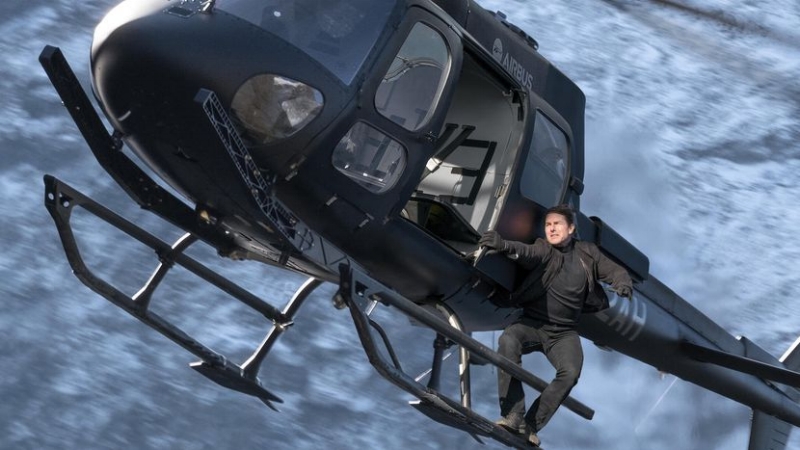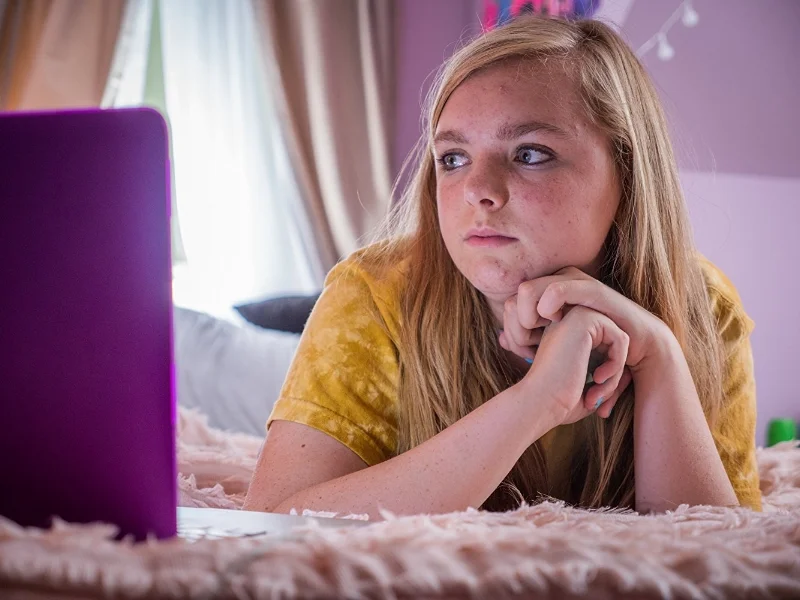BlacKkKlansman
Directing: A-
Acting: B+
Writing: A-
Cinematography: B
Editing: B+
It can be somewhat frustrating when the tone of a movie trailer doesn't exactly match the tone of the movie. The trailer for BlacKkKlansman makes it look a lot more fun than it actually is. The film certainly has a healthy sprinkling of humor and levity, but the trailer condenses them in a way that sort of makes you expect something a lot more light-hearted, if still very serious in its satirical value.
The unique mystery with this film in particular is whether that was a choice simply made by the movie studios that financed it, as is pretty typical with more straightforward attempts at comedies that don't necessarily work -- or, if director Spike Lee was himself pointedly intentional about it. This is a man who has made a career out of pressing audience's faces against essential issues, and this is one way to get people into seats.
To say that there is a lot more going on in that vein with BlacKkKlansman would be an understatement. There is a tonal shift at the very end that forces you to think, Oh . . . shit. And then you walk out of the theatre a daze, having had to watch something you knew was coming, did not want to see, but knew it had to be seen. One could also argue that the way I just put that oversells it as a bait-and-switch. But it's really going to depend on who you are, and what your ancestral relationship is to America.
In any case, this is Spike Lee's best film in years; maybe even his most vital work since 1989's predictably divisive Do the Right Thing. Lee has had a bit of a whirlwind career since then in terms of quality, from going pretty low (Bamboozled) to surprisingly palatable mainstream (Inside Man) and back again, to exposing the breaking seams of American culture. That's what's going on in BlacKkKlansman.
And how many people even knew the true story this was based on? I certainly didn't. In 1979, the first black detective in the Colorado Springs police department infiltrated the local chapter of the Ku Klux Klan. His name was Ron Stallworth (here played by John David Washington), and as he talks to the KKK over the phone, he enlists white cop Flip Zimmerman (Adam Driver) to pose as him at actual meetings.
Spike Lee makes many interesting choices in the telling of this story, with varying levels of effectiveness. After the marketing leads you to expect a highly stylized comedy, the story begins at a surprisingly slow pace, following along with Stallworth as he's hired by the Colorado Springs Police Department and initially positioning him in the records department. It would be easy to assume Stallworth faced plenty of hostility from the rest of the department, but Lee focuses on just one blatantly racist cop making things difficult for him, likely both for the sake of economy in storytelling and at least some level of deference to white fragility.
There's a lot of story to tell here, after all, and at 135 minutes, BlacKkKlansman is fairly long. Lee even goes out of his way to make it feel not just like this was set in 1979, but like you're watching a movie made in 1979, with specific choices of cinematography (shot by Chayse Irvin, who also shot Beyoncé: Lemonade) and especially musical score (Terence Blanchard). It all feels very "1979 movie." This seems to be a bit of a thing this year; Don't Worry, He Won't Get Far on Foot used similar techniques, albeit in a wildly different context.
And relatively early on, just as you're beginning to wonder if the whole movie will be this slow, something interesting happens. There's a scene with a man who "may or may not be a former Black Panther" giving a speech to a local black audience about black pride, black power, and possible black revolution. It crackles with energy, and Lee takes several moments to cut back and forth from the speaker (Straight Outta Compton's Corey Hawkins, making such excellent use of his single scene that he must be noted) and random audience members' faces, imposed upon a black background, rapt with attention. It's an artistic marker of a turning point in a community.
Although I have some mixed feelings about BlacKkKlansman's effectiveness as a movie, there's no denying the many similar ways in which Lee interweaves different thematic elements with subtle artistic finesse. David Duke (Topher Grace, well restrained) is disarmingly polite, even when speaking directly to the black people he openly despises. And much is made of the Jewishness Flip Zimmerman barely acknowledges even to himself, hammering home that black Americans are hardly the only people here with, as Stallworth puts it, "skin in the game." (This would include myself: as Zimmerman poses as a bigot and makes liberal use of epithets, "faggot" is used as much as any other.)
I'm tempted to say Adam Driver gives the best performance in the movie, but hesitate due to how potentially problematic it is for a white critic to praise the one white star in a movie about black oppression. Who knows what conditioned biases I have that I don't even realize are there? There's nothing wrong with John David Washington's performance -- I just didn't find it as affecting. To be fair, it's also curious that Lee presents Stallworth with a cocky confidence, and Zimmerman as the man who does any true soul searching when confronted with a hatred of his kind never personally experienced.
Another thing I can't decide: is Spike Lee's presentation of Colorado redneck bigots caricature? There's the local KKK chapter president's idiot brother (Paul Walter Hauser, previously seen in I, Tonya, evidently getting typecast as dim-witted fat dipshits). And then there's the wife of the KKK chapter's most suspicious member, Connie (Ashlie Atkinson), who is a bizarrely even mix of bubbly homemaker and hateful bigot. She happily goes along with being tasked to place explosives in an attack on Black Student Union President Patrice Dumas (Laura Harrier, luminescent), eager to please. By extension, I can't decide if their being rendered caricatures even matters. Or maybe it's deliberate, which would be subtly provocative in its own right. God knows non-white people (hell, anyone not white, male, and straight) have been presented as caricature since the dawn of popular entertainment.
This is all to say that BlacKkKlansman is not a perfect film, but it's that rare kind of film whose status as essential viewing is far from dependent on perfection. It's ripe for discussion and intellectual debate. Whether it's for its entertainment value or for facing hard truths -- both of which come in equal measure -- this is something people need to see.
Two guys with "skin in the game": The Stallworth Brothers.
Overall: B+










